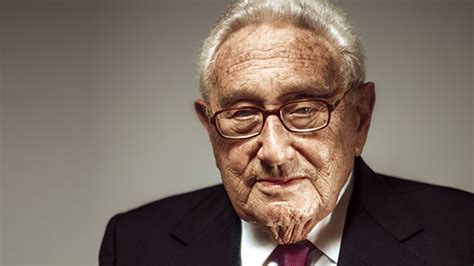Henry Kissinger’s tenure as U.S. Secretary of State and National Security Advisor is often scrutinized through the lens of human rights, revealing a complex and controversial legacy. His approach to foreign policy frequently prioritized strategic and geopolitical interests over human rights considerations, leading to criticisms that his decisions sometimes undermined global human rights standards. Kissinger’s involvement in various international affairs, such as U.S. relations with authoritarian regimes and responses to human rights abuses, has sparked ongoing debates about the balance between realpolitik and ethical considerations in diplomacy.
Kissinger’s Realpolitik Approach
Henry Kissinger’s foreign policy was heavily influenced by his commitment to realpolitik, a pragmatic approach that emphasizes practical and strategic interests over ideological or ethical concerns. This perspective often led to prioritizing geopolitical stability and national interests over human rights issues. For example, Kissinger’s handling of the Vietnam War, including the secret bombing campaign in Cambodia, was driven by strategic objectives rather than humanitarian concerns. This approach has been criticized for contributing to widespread suffering and undermining the promotion of human rights.
U.S. Relations with Authoritarian Regimes
Kissinger’s diplomatic strategy included engagement with various authoritarian regimes, which often involved overlooking or downplaying human rights abuses. His support for regimes such as those in Chile under Augusto Pinochet and Argentina during its “Dirty War” has been a focal point of criticism. Kissinger’s policies and statements regarding these regimes suggest a prioritization of anti-communist allies and strategic partnerships over the promotion of democratic values and human rights. This approach has been contentious, as it is perceived to have enabled or excused significant human rights violations in these countries.
The Role in the Bangladesh Liberation War
During the Bangladesh Liberation War of 1971, Kissinger’s role has been a subject of considerable controversy. The U.S. government’s response, which Kissinger influenced, has been criticized for its lack of action against the Pakistani military’s atrocities, including mass killings and widespread rape. Kissinger’s emphasis on maintaining relations with Pakistan, a key ally in the region, was seen as conflicting with the need to address and condemn the human rights violations occurring in Bangladesh. This episode highlights the tension between strategic interests and human rights considerations in Kissinger’s diplomatic approach.
Kissinger’s Legacy on Human Rights
Henry Kissinger’s legacy regarding human rights remains deeply polarizing. Supporters argue that his pragmatic approach was necessary for maintaining international stability during a turbulent period and that his decisions were made within the context of Cold War dynamics. Critics, however, contend that his willingness to compromise on human rights for strategic gains led to significant moral and ethical shortcomings. The debate over Kissinger’s legacy reflects broader questions about the role of human rights in foreign policy and the extent to which strategic interests should shape diplomatic decisions.
The Debate on Ethical Diplomacy
Kissinger’s career raises important questions about the balance between ethical diplomacy and pragmatic realpolitik. His approach underscores the challenges faced by policymakers in balancing national interests with the responsibility to uphold human rights. The debate surrounding Kissinger’s actions highlights the ongoing struggle to reconcile strategic imperatives with moral obligations in international relations. This discussion remains relevant as contemporary diplomats and policymakers grapple with similar dilemmas in addressing global human rights issues while pursuing national interests.

Vote
Who is your all-time favorite president?
Impact on U.S. Foreign Policy
Kissinger’s influence on U.S. foreign policy extends beyond his tenure, shaping subsequent approaches to international relations and human rights. His emphasis on strategic alliances and geopolitical stability has influenced how the U.S. engages with authoritarian regimes and addresses human rights concerns. The legacy of Kissinger’s policies serves as a reference point for understanding the evolution of U.S. foreign policy and its approach to balancing strategic interests with ethical considerations in the international arena.
Lessons for Contemporary Diplomacy
The lessons from Kissinger’s approach to human rights and foreign policy offer valuable insights for contemporary diplomacy. The tension between strategic interests and human rights considerations remains a critical issue in global politics. Policymakers today can learn from Kissinger’s experiences by striving to integrate human rights into diplomatic strategies while navigating complex geopolitical landscapes. Ensuring that ethical considerations are not sidelined in favor of strategic gains is essential for fostering a more principled and humane approach to international relations.
Evaluating Kissinger’s Contributions
Evaluating Henry Kissinger’s contributions to foreign policy requires a nuanced understanding of his impact on both global politics and human rights. While his strategic achievements in areas such as détente with the Soviet Union and opening relations with China are notable, his legacy is also marked by controversial decisions that have had significant human rights implications. A comprehensive assessment of Kissinger’s career involves examining both his successes and the criticisms of his approach, providing a balanced view of his role in shaping modern diplomacy.
Ongoing Scholarly Analysis
Scholarly analysis of Henry Kissinger’s career continues to evolve as new evidence and perspectives emerge. Researchers and historians examine declassified documents, conduct interviews, and assess the long-term effects of his policies to better understand his impact on human rights and international relations. This ongoing analysis contributes to a deeper comprehension of Kissinger’s legacy and informs current debates about the role of ethics in diplomacy. As new insights emerge, the evaluation of Kissinger’s contributions and their implications for human rights continues to be a dynamic area of study.
Final Thoughts
Henry Kissinger’s legacy with respect to human rights remains complex and contentious. His realpolitik approach and strategic priorities often overshadowed human rights considerations, leading to significant debates about the ethical dimensions of his foreign policy decisions. The ongoing scrutiny of Kissinger’s career highlights the challenges of balancing national interests with the promotion of human rights in international relations. As policymakers and scholars continue to reflect on his impact, the lessons from Kissinger’s tenure offer valuable insights into the evolving relationship between diplomacy, strategy, and ethical responsibilities.